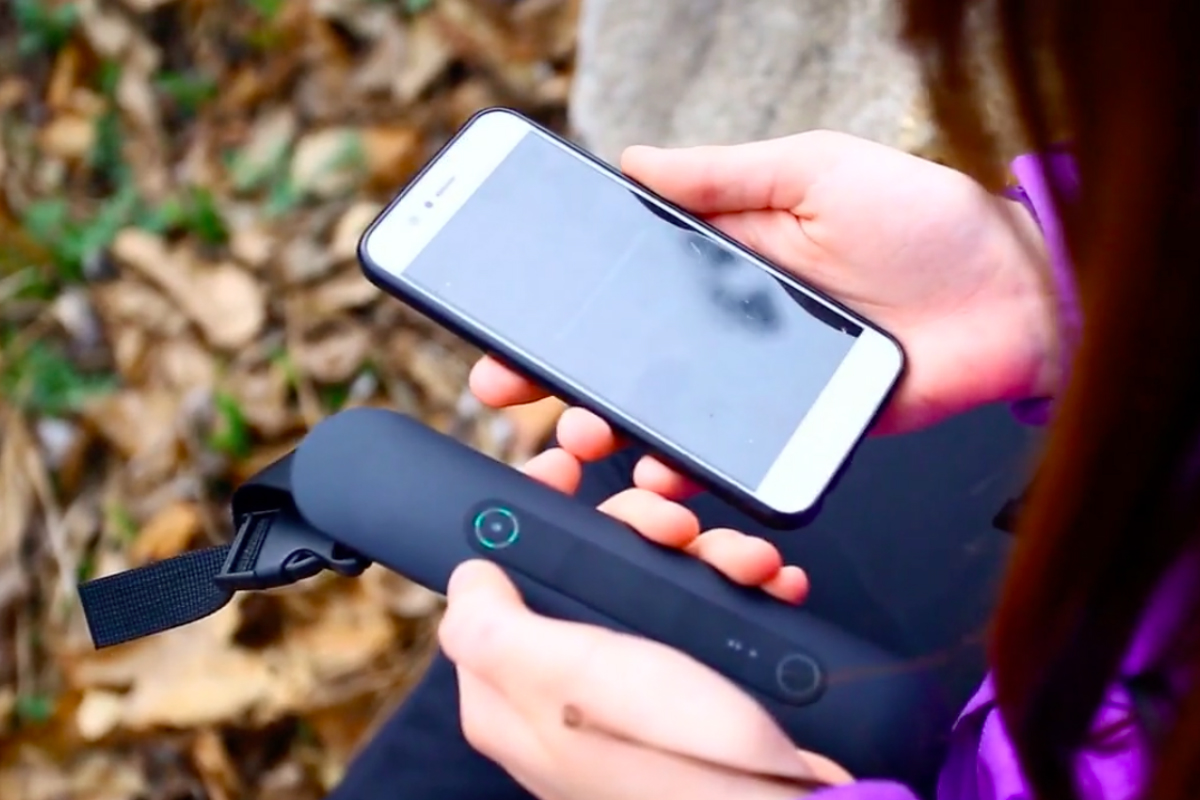While exploring the outdoors can be both exhilarating and rewarding, there are risks associated with any kind of physical activity — enhanced by the unpredictability of nature. If you’ve ever been injured, lost, or involved in the rescue of a friend in the backcountry, you can appreciate the ability to get into contact with other people, and were likely grateful for your cell phone signal or network connection.
But much of the time there is no cell phone signal or network connection in the backcountry — leading to horror stories of people left to fend for themselves because they were incapable of calling for help. GoHeart aims to solve this problem with the GoHeart Mesh, a powerful outdoor networking device.
GoHeart Mesh features a user-friendly interface that allows outdoor enthusiasts to get help, track other users, and communicate without the internet or a telecommunications signal. This small, handheld device fits easily into your pocket or backpack — leaving no reason to go without it. The product utilizes mesh networking technology in order to connect you to other users. Integrated DSSS reduces overall signal interface and provides for a higher coverage range than a traditional walkie-talkie. It also provides for efficient signal transmission and sips on your battery, making for a useful backcountry companion.
GoHeart Mesh provides for eight core functions, including an SOS button that alerts other users that you need help, text communication that allows you to send and receive messages, GPS location sharing so that you always know where your comrades are, P2P tracking, a walkie-talkie function, low power consumption that allows for twelve hours of use, voice messaging for verbal communication, and a scratch-proof design that ensures durability in the outdoors.
The best part? GoHeart Mesh is not just designed for outdoor use — it’s ideal for group travel, underground use, military use, and cave adventures, as well. How does it work? You simply download the GoHeart app designed for iOS and Android, connect the device to your phone via Bluetooth, and build a team by adding respective teammates with their own devices.
Although crowdfunding projects are not guaranteed, GoHeart Mesh has been fully funded. Learn more about crowdfunding projects. A pledge of $170 on the company’s Kickstarter campaign page awards you the best chance of getting your hands on a package of two GoHeart Mesh devices, with estimated delivery beginning in August.







